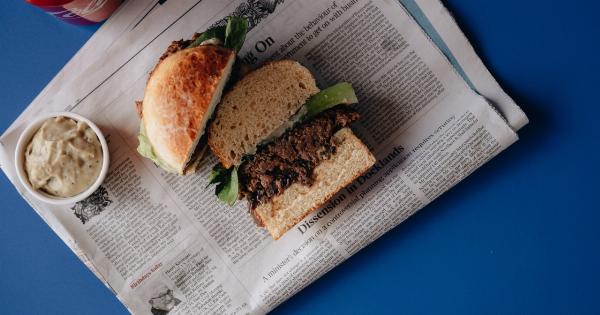When it comes to losing weight, the idea of “calories in, calories out” is a commonly held belief. However, the timing of your meals can also play a crucial role in weight loss.
Eating at the right time can help maximize fat burning and improve overall metabolism. Here are some tips on timing your meals for optimal fat burning.
1. Eat breakfast within an hour of waking up
Starting your day with a nutritious breakfast is important for setting the tone for the rest of the day. Studies have shown that eating breakfast can help kickstart your metabolism, which is essential for fat burning.
Ideally, you should aim to eat breakfast within an hour of waking up to maximize the benefits.
2. Eat small, frequent meals throughout the day
Eating small, frequent meals throughout the day can help keep your metabolism humming and prevent hunger cravings. It’s important to pay attention to portion sizes and to choose nutrient-dense foods such as fruits, vegetables, and lean proteins.
Aim to eat every three to four hours to keep your metabolism going.
3. Time your workouts around your meals
Timing your workouts around your meals can help optimize fat burning. It’s best to exercise in the morning on an empty stomach to maximize fat burning.
However, if that’s not possible, aim to schedule your workouts at least two to three hours after eating to ensure that your body has enough time to digest the food and use it for energy during your workout.
4. Fuel up before workouts
It’s important to fuel up before workouts to ensure that your body has enough energy to power through a workout. Eating a small meal or snack 30 minutes to an hour before exercise can help provide the necessary energy without weighing you down.
Aim to eat something that’s high in carbohydrates and low in fat and fiber for optimal energy.
5. Avoid late-night eating
Many people struggle with late-night snacking, but eating too close to bedtime can interfere with fat burning. The body’s metabolism slows down during sleep, which means that the food you eat before bed is more likely to be stored as fat.
Aim to finish eating at least two to three hours before bedtime.
6. Don’t skip meals
Skipping meals can actually slow down your metabolism and make it harder to burn fat. When you skip meals, your body goes into starvation mode, which means that it will start holding onto fat as a survival mechanism.
It’s important to eat regularly throughout the day to keep your metabolism going.
7. Be consistent with your meals
Consistency is key when it comes to timing your meals for optimal fat burning. It’s important to eat at the same time each day and to avoid large fluctuations in your diet.
By sticking to a consistent meal schedule, your body will get into a routine and be better equipped to burn fat efficiently.
8. Increase protein intake
Protein is an essential nutrient for building and maintaining lean muscle mass, which in turn helps boost metabolism and burn fat. Aim to include protein at every meal and snack, and choose lean sources such as chicken, fish, eggs, and tofu.
Protein also helps keep you feeling full throughout the day, which can prevent overeating and weight gain.
9. Drink plenty of water
Drinking water is important for overall health, and it can also help boost metabolism and burn fat. Aim to drink at least eight glasses of water per day to stay hydrated and energized.
Drinking water before meals can also help reduce appetite and prevent overeating.
10. Consider intermittent fasting
Intermittent fasting is a practice that involves alternating periods of eating and fasting. It can help improve metabolism and maximize fat burning.
There are several different approaches to intermittent fasting, and it’s important to choose a method that works for your lifestyle and goals.




























